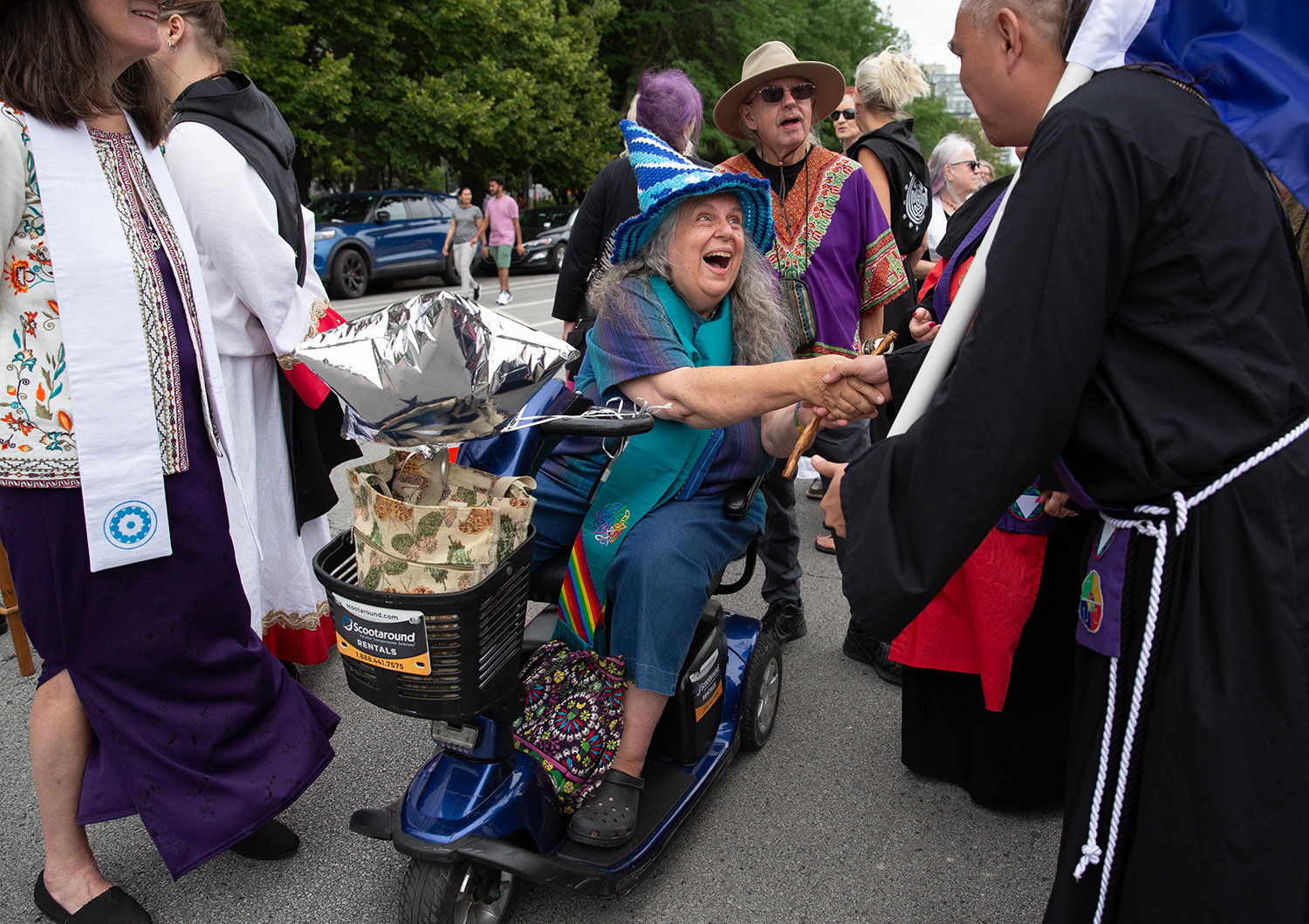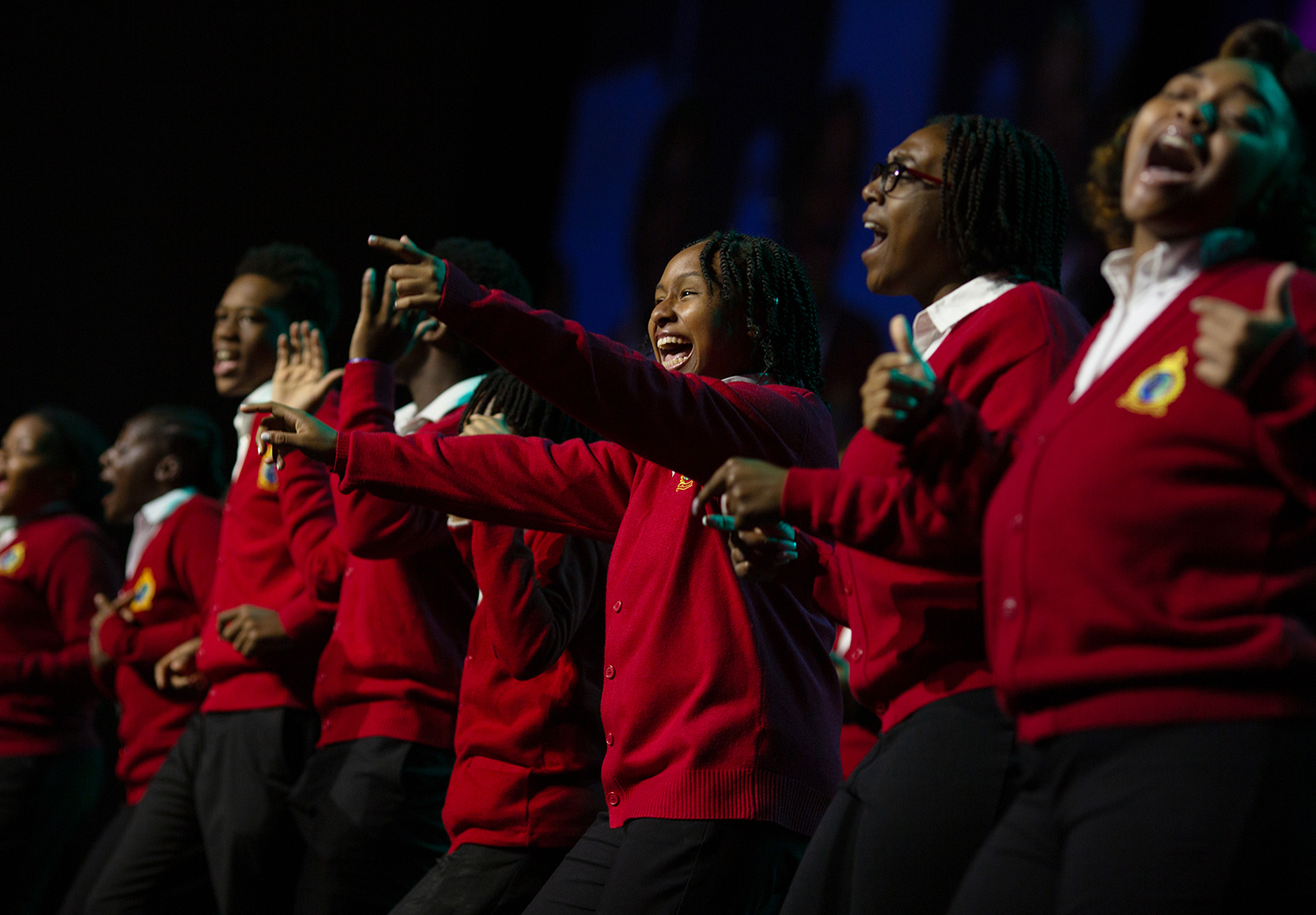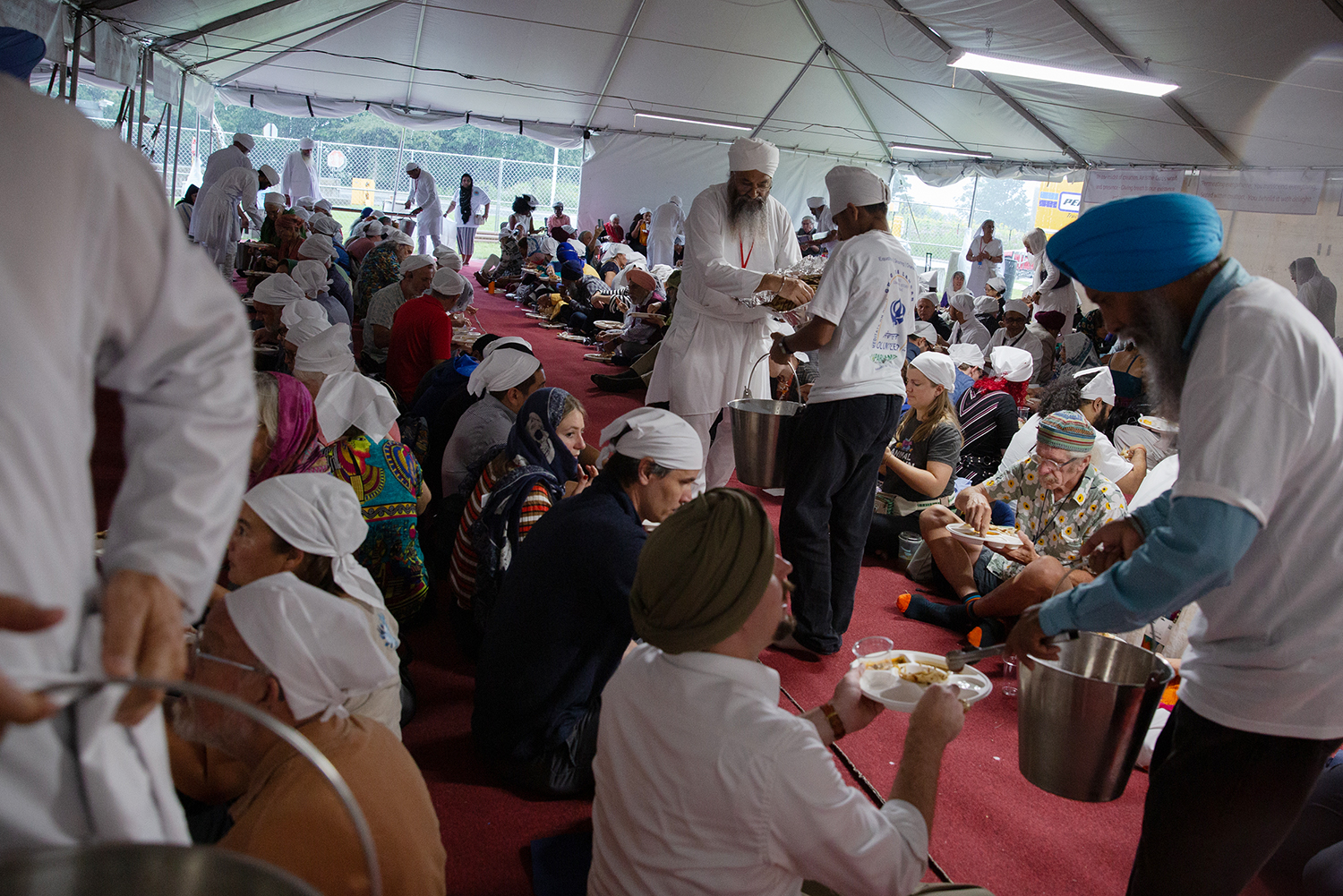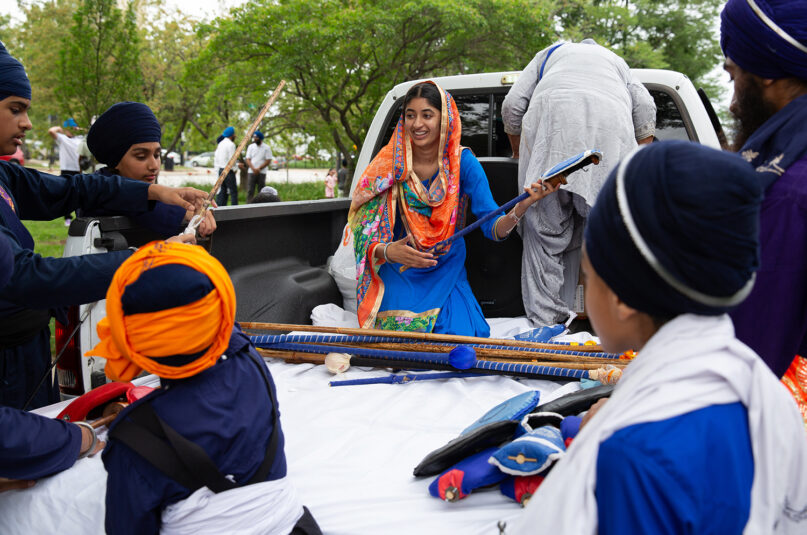CHICAGO (RNS) — Thousands of religious leaders — from Buddhists to Zoroastrians — gathered at Chicago’s cavernous McCormick Place conference center on Monday (Aug. 14) for the opening day of the Parliament of the World’s Religions, a historic and influential gathering.
Leaders from a wide range of faiths urged attendees to appreciate both the uniqueness of their own spiritual traditions as well as the traditions of their neighbors — and to work together to address the world’s biggest problems.
The Rev. Vance Henry, the chief of faith engagement for Chicago’s mayor, told attendees that the world remains filled with darkness and division. But that darkness, he said, can be overcome if people of faith work together.
He drew on a story from his childhood and from a parable of Jesus to make his point — saying it is better to light a candle than to curse the darkness.
“If we decided to put our lights together — we can force the darkness away,” he said.
The Rev. Asayo Horibe, president of the Buddhist Council of the Midwest, described the Parliament as both a spiritual event and a gathering of friends. Horibe, who greeted attendees in English, Spanish and Hawaiian, said she first attended a Parliament gathering in 1993, the last time it was held in Chicago. The Parliament traces its history to an event in 1893, also in Chicago, which is credited with inspiring the interfaith movement in the United States.
“I am so grateful for the friendships that have come my way since the beginning of this journey,” Horibe said.
She urged attendees to learn from each other — and to share what they learn.
“Talk to everyone,” she said. “Greet everyone. And go home with the treasures you have received at this gathering.”

The Rev. Selena Fox of Circle Sanctuary greets another participant in the Parade of Faiths in downtown Chicago on Aug. 13, 2023. The parade preceded the Parliament of the World’s Religions, which began Aug. 14. Photo by Lauren Pond for RNS
Eboo Patel, founder of Chicago-based Interfaith America, told Religion News Service that much of the nation’s interfaith movement, including the organization he leads, was inspired by the work of the Parliament.
“This week it gives a profound gift to the world: demonstration that faith is a source of inspiration, not domination; a bridge of cooperation, not a barrier of division,” he said.
As of Monday afternoon, more than 6,500 attendees from 95 countries, representing 212 spiritual traditions, had registered for the Parliament, with more attending online.
Along with plenary sessions about climate change and defending human rights, the Parliament’s meeting offers hundreds of workshops and panels — as well as networking opportunities.
In her remarks during the Parliament’s opening session, Barbara Abrajano, president of the Council of Religious Leaders of Metropolitan Chicago, reminded attendees of the power of interfaith cooperation.
“No single community of faith working alone can resolve the challenges that all of us face together,” she told attendees. “But if we stand together for all we believe, then our diversity is our greatest strength. We show people that there is another, better way.”
Rashad Hussain, the U.S. ambassador-at-large for religious freedom, echoed the idea that religious diversity is a source of strength.
“We don’t seek uniformity,” he told attendees. “But we must have a unity in purpose.”
Hussain, who is Muslim, also stressed the importance of protecting religious freedom for all. During his comments, he pointed out that he succeeded former Ambassador Sam Brownback, who is Christian, and Rabbi David Saperstein, who is Jewish.
In an interview after the opening session, Hussain said he continues to work with his predecessors on matters of religious freedom, which remains a bipartisan issue. Their collaboration and their differing faith backgrounds serve as an example of interfaith cooperation.
“It sends a powerful signal to the world that we will stand up for the rights of all people,” Hussain said.
He also said the Parliament can be an example of the way religious communities can help address global challenges.
“Religion can be such a powerful force for good all around the world in bringing us together and addressing some of the challenges that we face,” he said. “And it should always be a force for good. It should never be used to harm people or oppress people.”

Members of a praise team perform during the opening ceremony of the Parliament of the World’s Religions in downtown Chicago on Aug. 14, 2023. Photo by Lauren Pond for RNS
Speakers at the Parliament’s opening sessions spoke openly about the ways religion can be viewed with suspicion or used to harm others. That makes the Parliament’s work all the more important, said the Rev. Paul Raushenbush, president of the Interfaith Alliance.
Raushenbush, who will give a plenary address on Tuesday, told RNS the Parliament’s focus on both religious freedom and human rights is essential, especially at a time when authoritarian forms of organized religion are on the rise.
“The reason the interfaith movement was born was because people decided they were not going to kill each other because they believe different things,” he said. “And we still have people killing each other for believing different things.”
In his address later this week, Raushenbush said, he plans to challenge attendees to put their beliefs and their cooperation into action to counter authoritarian political and religious groups.
“We are really focusing on the rise of authoritarianism and the rise of the threat of a certain elevation of one religious tradition over others,” he said. “And this is happening around the world working in concert with political and other kinds of power.”

Sikhs distribute a langar lunch to attendees of the Parliament of the World’s Religions in downtown Chicago on Aug. 14, 2023. Photo by Lauren Pond for RNS
Questions about the role of religion in the world drew a small group of students and staff from Queens University in Charlotte, North Carolina, to the Parliament.
“We’re here to really ask some serious questions about working together to build a thriving world community,” said Queens University chaplain Adrian Bird.
Katie Pittman, a senior religion major at Queens, said the Parliament was a chance for her to experience a wide range of religious diversity in person.
“I’m really here to just soak everything up and learn.”





